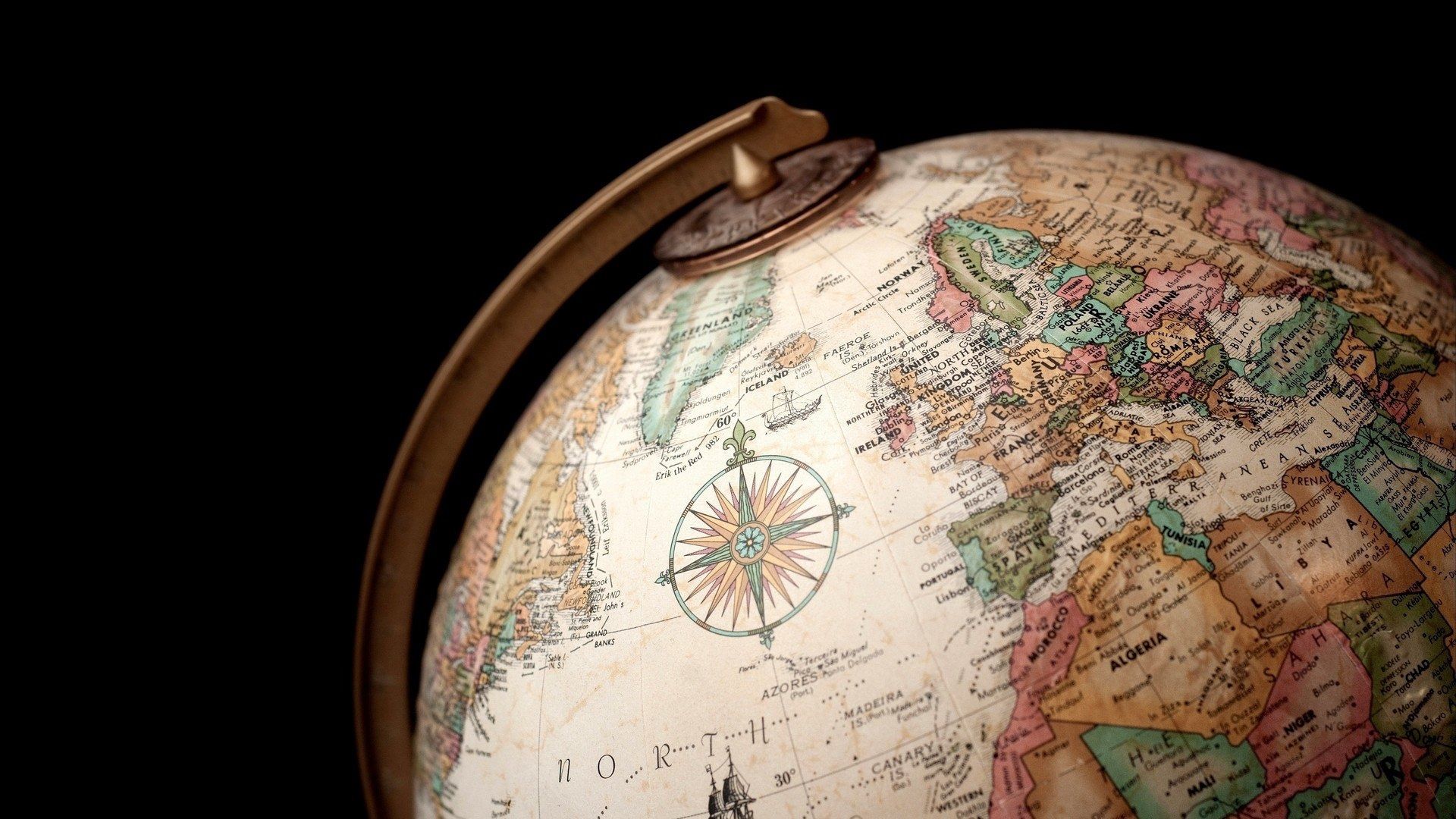
Geography is more than just maps and capitals. It's a fascinating subject that shapes our world in countless ways. Ever wondered why some countries have unique borders or how natural wonders form? Geography holds the answers. From the highest peaks to the deepest oceans, it reveals the planet's secrets. Did you know that Russia spans 11 time zones or that the Amazon rainforest produces 20% of the world's oxygen? Geography isn't just about places; it's about understanding how humans interact with their environment. Ready to dive into some mind-blowing facts? Let's explore the wonders of geography together!
Key Takeaways:
- Continents, oceans, mountains, deserts, rivers, islands, lakes, and cities all have fascinating and unique features that make up our diverse and beautiful planet.
- From the towering Mount Everest to the bustling city of Tokyo, geography is full of amazing facts that showcase the incredible diversity and wonder of our world.
Fascinating Facts About Continents
Continents are massive landmasses that make up the Earth's surface. Each one has unique features and interesting trivia.
- Asia is the largest continent, covering about 30% of the Earth's land area.
- Africa is home to the longest river, the Nile, which stretches over 4,000 miles.
- Antarctica is the coldest continent, with temperatures dropping to -128.6°F.
- Europe is the second smallest continent but has the highest number of countries, totaling 44.
- Australia is the smallest continent and is often referred to as an island continent.
- North America has the largest freshwater lake, Lake Superior, by surface area.
- South America is home to the Amazon Rainforest, which produces 20% of the world's oxygen.
Intriguing Ocean Facts
Oceans cover about 71% of the Earth's surface and hold many secrets beneath their waves.
- The Pacific Ocean is the largest and deepest ocean, covering more than 63 million square miles.
- The Atlantic Ocean is the second largest and is known for the Bermuda Triangle.
- The Indian Ocean is the warmest ocean, with temperatures often exceeding 82°F.
- The Southern Ocean surrounds Antarctica and is the newest named ocean, recognized in 2000.
- The Arctic Ocean is the smallest and shallowest, mostly covered by sea ice.
Amazing Mountain Facts
Mountains are majestic natural formations that rise prominently above their surroundings.
- Mount Everest is the highest mountain above sea level, standing at 29,032 feet.
- K2, also known as Mount Godwin-Austen, is the second highest and is considered more challenging to climb than Everest.
- The Andes is the longest mountain range, stretching over 4,300 miles along South America.
- Mount Kilimanjaro in Africa is the tallest free-standing mountain in the world.
- The Rocky Mountains span over 3,000 miles from Canada to New Mexico.
- Mount Fuji in Japan is an active volcano and a cultural icon.
Interesting Desert Facts
Deserts are arid regions that receive very little precipitation.
- The Sahara Desert is the largest hot desert, covering 3.6 million square miles.
- The Antarctic Desert is the largest cold desert, encompassing 5.5 million square miles.
- The Gobi Desert in Asia is known for its extreme temperatures, ranging from -40°F to 122°F.
- The Atacama Desert in Chile is the driest place on Earth, with some areas receiving no rainfall for decades.
- The Arabian Desert spans over 900,000 square miles in the Middle East.
Unique River Facts
Rivers are vital watercourses that flow across the land, providing resources and habitats.
- The Amazon River is the largest by discharge volume, releasing more water than the next seven largest rivers combined.
- The Yangtze River in China is the longest river in Asia, stretching over 3,900 miles.
- The Mississippi River is the second longest river in North America, flowing 2,340 miles.
- The Danube River flows through 10 countries, more than any other river in the world.
- The Nile River is traditionally considered the longest river, though some debate this with the Amazon.
Incredible Island Facts
Islands are landmasses surrounded by water, each with its own unique ecosystem.
- Greenland is the largest island, covering over 836,000 square miles.
- New Guinea is the second largest island, shared by Indonesia and Papua New Guinea.
- Borneo is the third largest island and is divided among three countries: Indonesia, Malaysia, and Brunei.
- Madagascar is the fourth largest island and is known for its unique wildlife.
- Honshu is the largest island of Japan and home to the capital, Tokyo.
Surprising Lake Facts
Lakes are inland bodies of water that vary greatly in size and depth.
- Caspian Sea is the largest enclosed inland body of water, often considered the world's largest lake.
- Lake Baikal in Russia is the deepest and oldest freshwater lake, containing 20% of the world's unfrozen freshwater.
- Lake Superior is the largest freshwater lake by surface area, shared by the U.S. and Canada.
- Lake Victoria is Africa's largest lake and the world's second largest freshwater lake by surface area.
- Dead Sea is one of the world's saltiest bodies of water, making it easy to float.
Fun Facts About Cities
Cities are bustling hubs of human activity, each with its own history and culture.
- Tokyo is the most populous city in the world, with over 37 million residents.
- Mexico City is built on a lake, causing it to sink about 10 inches each year.
- Venice is famous for its canals and is slowly sinking due to rising sea levels.
- Istanbul is the only city that spans two continents, Europe and Asia.
- New York City has the largest metropolitan area in the U.S., with over 20 million people.
Miscellaneous Geography Facts
Geography encompasses a wide range of topics, from natural formations to human-made structures.
Geography's Hidden Gems
Geography isn't just about maps and capitals. It's a treasure chest of fascinating facts that reveal the wonders of our world. From the deepest ocean trenches to the highest mountain peaks, every corner of Earth holds a story. Did you know that Mount Everest grows about 4 millimeters every year? Or that Australia is wider than the moon? These tidbits make geography more than just a subject; they make it an adventure.
Understanding geography helps us appreciate the diversity of cultures, the beauty of landscapes, and the complexity of ecosystems. It connects us to places we've never been and people we've never met. So next time you look at a map, remember, it's not just lines and colors. It's a gateway to endless exploration and discovery. Keep learning, stay curious, and let geography's hidden gems inspire your next adventure.
Frequently Asked Questions
Was this page helpful?
Our commitment to delivering trustworthy and engaging content is at the heart of what we do. Each fact on our site is contributed by real users like you, bringing a wealth of diverse insights and information. To ensure the highest standards of accuracy and reliability, our dedicated editors meticulously review each submission. This process guarantees that the facts we share are not only fascinating but also credible. Trust in our commitment to quality and authenticity as you explore and learn with us.


